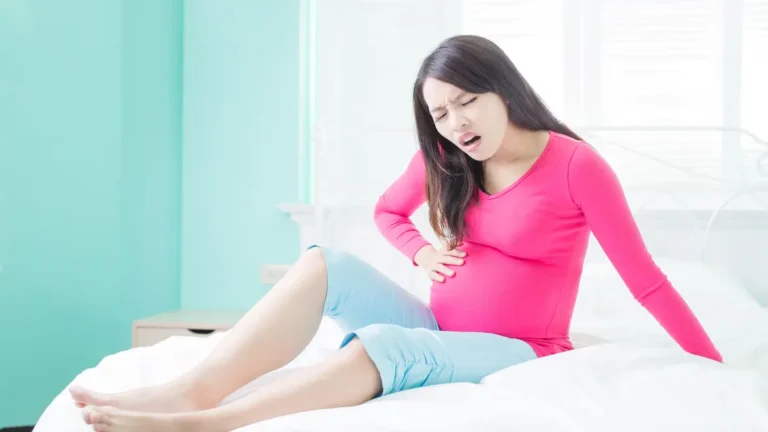The second trimester of pregnancy, typically spanning from weeks 13 to 28, is often considered the “honeymoon period” for many women. This is because some of the early symptoms of pregnancy, like nausea and fatigue, tend to subside. However, it’s still a time when women may experience a range of discomforts as their body continues to adapt to the changes. Here are some common discomforts experienced during the second trimester:
- Back Pain
As the baby grows, your center of gravity shifts, and the added weight puts pressure on the spine and lower back. This can cause discomfort, especially during activities like standing for long periods or bending over. It’s essential to practice good posture, use supportive pillows, and wear comfortable shoes to help alleviate back pain. - Round Ligament Pain
The ligaments supporting the uterus stretch as it grows, which can lead to sharp or dull pain in the lower abdomen or groin area. This is known as round ligament pain and is most common when changing positions, such as getting up from a sitting position or turning over in bed. This discomfort is usually temporary and can be eased with rest. - Leg Cramps
Many women experience leg cramps during the second trimester, especially at night. The cramps can occur due to the increased pressure on the veins and a change in circulation, as well as a potential lack of calcium or magnesium. Stretching before bed, staying hydrated, and ensuring proper nutrition can help alleviate this discomfort. - Heartburn and Indigestion
As your baby grows and your uterus expands, it can push up against your stomach, leading to acid reflux, heartburn, or indigestion. Hormonal changes also relax the valve between the stomach and esophagus, which can cause stomach acid to flow back up. Eating smaller meals, avoiding spicy or acidic foods, and sitting up after meals can help manage these symptoms. - Constipation
Progesterone, a hormone that increases during pregnancy, relaxes the muscles in the digestive tract, which can slow down digestion and lead to constipation. Additionally, your growing uterus may put pressure on your intestines. To alleviate constipation, it’s important to eat a fiber-rich diet, drink plenty of water, and engage in light physical activity if cleared by your doctor. - Swelling
Fluid retention can cause swelling in the feet, ankles, and hands. This is more common in the second trimester as your body produces extra blood and fluids to support your pregnancy. Swelling is usually harmless, but it can be uncomfortable. Elevating your feet, wearing comfortable shoes, and avoiding standing for long periods can help reduce swelling. - Skin Changes
Hormonal changes during pregnancy can lead to various skin changes, including darkening of the skin (hyperpigmentation) around the nipples, belly, and underarms. Some women also develop a dark line down the center of the abdomen, known as the linea nigra. Additionally, stretch marks may appear as the skin stretches to accommodate the growing baby. - Increased Vaginal Discharge
A normal increase in vaginal discharge, known as leukorrhea, is common during the second trimester. This discharge is usually clear or milky and helps prevent infections. However, if the discharge has a foul odor or is accompanied by itching, burning, or bleeding, it’s essential to contact your healthcare provider. - Nasal Congestion
Many women experience stuffy noses or sinus congestion during pregnancy, due to increased blood flow and hormonal changes. This can lead to swelling of the nasal passages and an increased production of mucus. Using a saline nasal spray or humidifier can help relieve the congestion. - Tiredness and Fatigue
Although many women feel more energetic during the second trimester, some still experience bouts of tiredness. Your body is working hard to support the growing baby, and fluctuating hormone levels can contribute to feelings of fatigue. It’s important to get plenty of rest, maintain a balanced diet, and take breaks when needed. - Difficulty Sleeping
As your belly grows, it may become harder to get comfortable at night. Hormonal changes, along with physical discomforts like back pain or the need to urinate more frequently, can disrupt your sleep. Sleeping on your left side and using pillows to support your body can help improve comfort. - Frequent Urination
During the second trimester, the growing uterus may put pressure on the bladder, making it more difficult to hold urine for long periods. This can lead to more frequent trips to the bathroom, especially at night. It’s a good idea to stay hydrated but reduce liquid intake close to bedtime to minimize nighttime trips. - Mood Swings
Hormonal fluctuations during pregnancy can affect your emotions, leading to mood swings or heightened emotional sensitivity. These mood changes are common and usually subside after a few weeks. It’s important to practice self-care, talk to your support system, and seek help if emotional discomfort becomes overwhelming.
When to Seek Medical Help:
While most discomforts of the second trimester are normal, there are certain symptoms that may require medical attention. Contact your doctor if you experience:
● Severe abdominal pain or cramping
● Severe swelling in your hands or face
● Vision changes or headaches that won’t go away
● Painful urination or blood in your urine
● Severe or persistent vomiting
● Sudden or severe leg swelling or pain (which could indicate a blood clot)
At Borneo Mother & Child Hospital, we provide comprehensive care and support to help manage any discomforts you experience during the second trimester. Our team is always available to address any concerns, ensuring that your pregnancy continues smoothly and comfortably.


